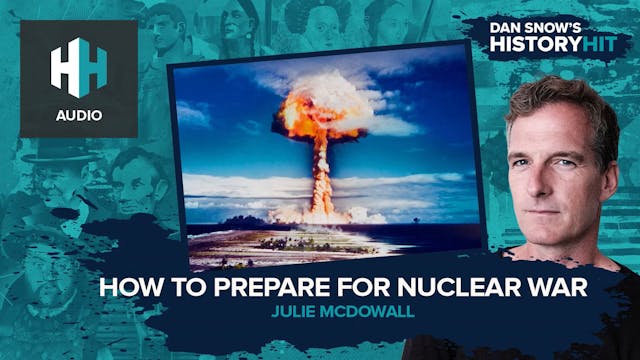🎧 Scott's Last Days in the Antarctic
Archive of Dan Snow's History Hit 🎧
•
33m
In the last week of March 1912, Captain Robert Falcon Scott died in his tent in Antarctica, on his failed effort to become the first person to reach the South Pole. He'd just missed out to the Norwegians under explorer Roald Amundsen. You might think the British had no chance from the beginning- Amundsen's crew were wearing sealskins and using dogs, sledding 50 miles a day while Scott's team were outfitted in kit from Bond Street, covering just 10 miles a day. The motorised vehicles they took lasted only a couple of days; one sinking through the ice the moment they took it off the ship. But, Tim Maltin's new research suggests there was something more unusual else at play that led to their failure and ultimately Scott's death: thermal inversion. The same meteorological phenomenon that caused Titanic to hit the iceberg just two weeks later.
Tim joins Dan on the podcast to discuss the rivalry between two great explorers, the similarities and differences between their expeditions, he takes Dan through the gruelling last months of Scott's expedition, what happened the night of Scott's death and the discovery of their bodies, months later.
Produced by James Hickmann and mixed by Dougal Patmore
Up Next in Archive of Dan Snow's History Hit 🎧
-
🎧 Vikings in Spain
When we think of Vikings, we tend to picture them in the colder climates of Northern Europe, and not so much in the warmer regions of Spain and the Mediterranean beyond.
However, joining Dr. Cat Jarman today is Dr. Irene García Losquiño, a researcher whose work is uncovering Viking activity on t...
-
🎧 HMS Victory
During the Battle of Trafalgar, the men on the gun decks of HMS Victory felt the heat of fire from above and from below; they dodged enemy cannon balls shot from just 2 metres away. HMS Victory was the flagship of Nelson's fleet during that historic clash with the French and Spanish on the 21st o...
-
🎧 How to Prepare for Nuclear War
With Putin's war in Ukraine raging on, the threat of a nuclear conflict feels as real as ever. But since the Iron Curtain fell, our understanding of what to do in the event of a nuclear strike has waned. In this episode, we look to the past to discover the extraordinary things that the British go...



